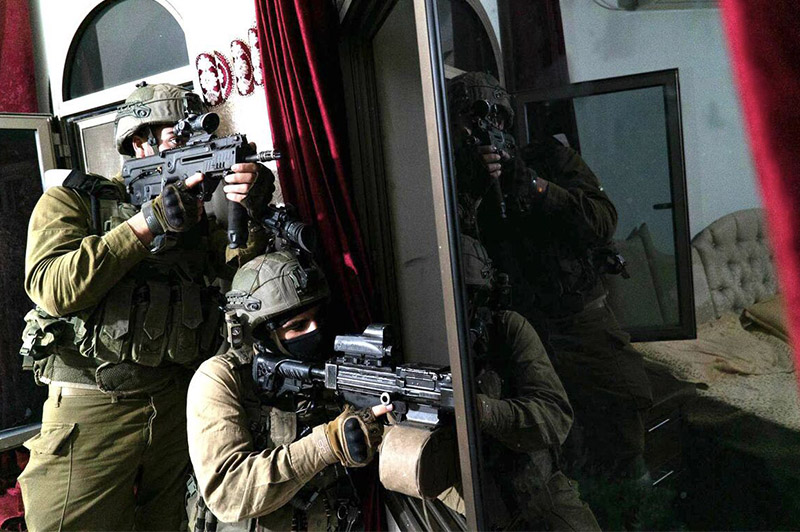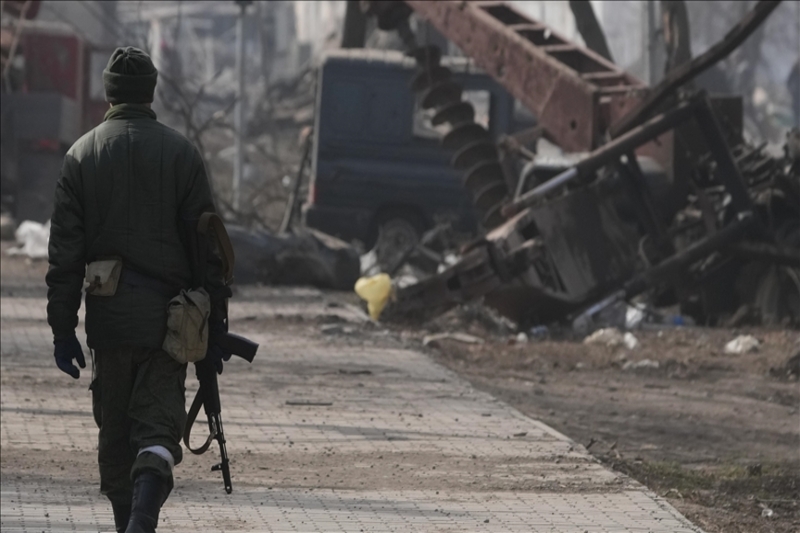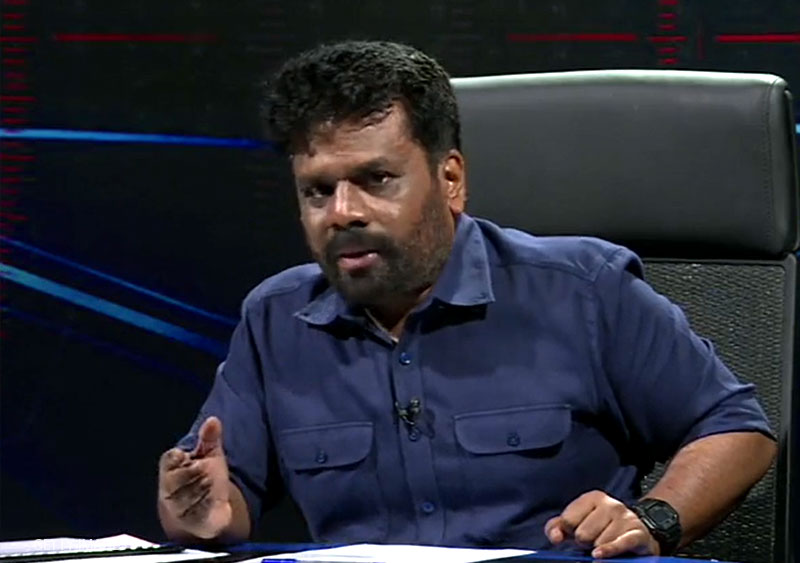By Aryan D.M.
Introduction
"War is the realm of uncertainty; three-quarters of the factors on which action in war is based are wrapped in a fog of greater or lesser uncertainty."— Carl von Clausewitz
In recent times, Israel has faced significant challenges to its intelligence and defense capabilities.
A series of surprise attacks by Hamas has highlighted potential shortcomings in Israeli intelligence and raised questions about preparedness.
This article examines these recent developments, provides historical context, and explores potential lessons for the future.
Recent Challenges: Hamas Attacks Raise Concerns
Surprise Attacks by Hamas:

U.S. President Joe Biden speaks on the attacks in Israel alongside Secretary of State Antony Blinken (Photo: Samuel Corum/Getty Images)
In a series of well-coordinated attacks, Hamas militants infiltrated Israeli territory, catching Israeli security forces off guard.
The attacks included land and sea infiltrations, along with rocket assaults, resulting in casualties on both sides.
This audacious assault has left Israeli intelligence and defense communities searching for answers.
US Officials Express Concern:
Even U.S. officials expressed surprise at the audacity of the Hamas attacks. American intelligence had monitored rising tensions, but there were no tactical-level warnings of an attack of this magnitude.
This has raised concerns about potential technological blind spots in intelligence gathering.
Unprecedented Intelligence Failure:
The surprise attack on Israel carries echoes of the intelligence failure preceding the Yom Kippur War in 1973.
While Israeli officials had been warning of rising tensions, the timing and scale of the attack caught many by surprise.
It is crucial to assess whether there were indicators missed or if there was a failure in intelligence collection.
The Broader Implications:
Surprise attacks often lead to significant responses by targeted nations. Within hours of the attack, Israel initiated Operation Swords of Iron, conducting airstrikes in the Gaza Strip.
This has broader implications for regional stability and international responses.
Historical Perspective: The Yom Kippur War of 1973
The Yom Kippur War, also known as the October War or the Ramadan War, was a pivotal conflict in the Middle East that began on October 6, 1973, when Egypt and Syria launched a surprise attack against Israel on the Jewish holy day of Yom Kippur.
This attack took place on multiple fronts, with Egypt crossing the Suez Canal into the Sinai Peninsula and Syrian forces attacking the Golan Heights.
The Intelligence Failure
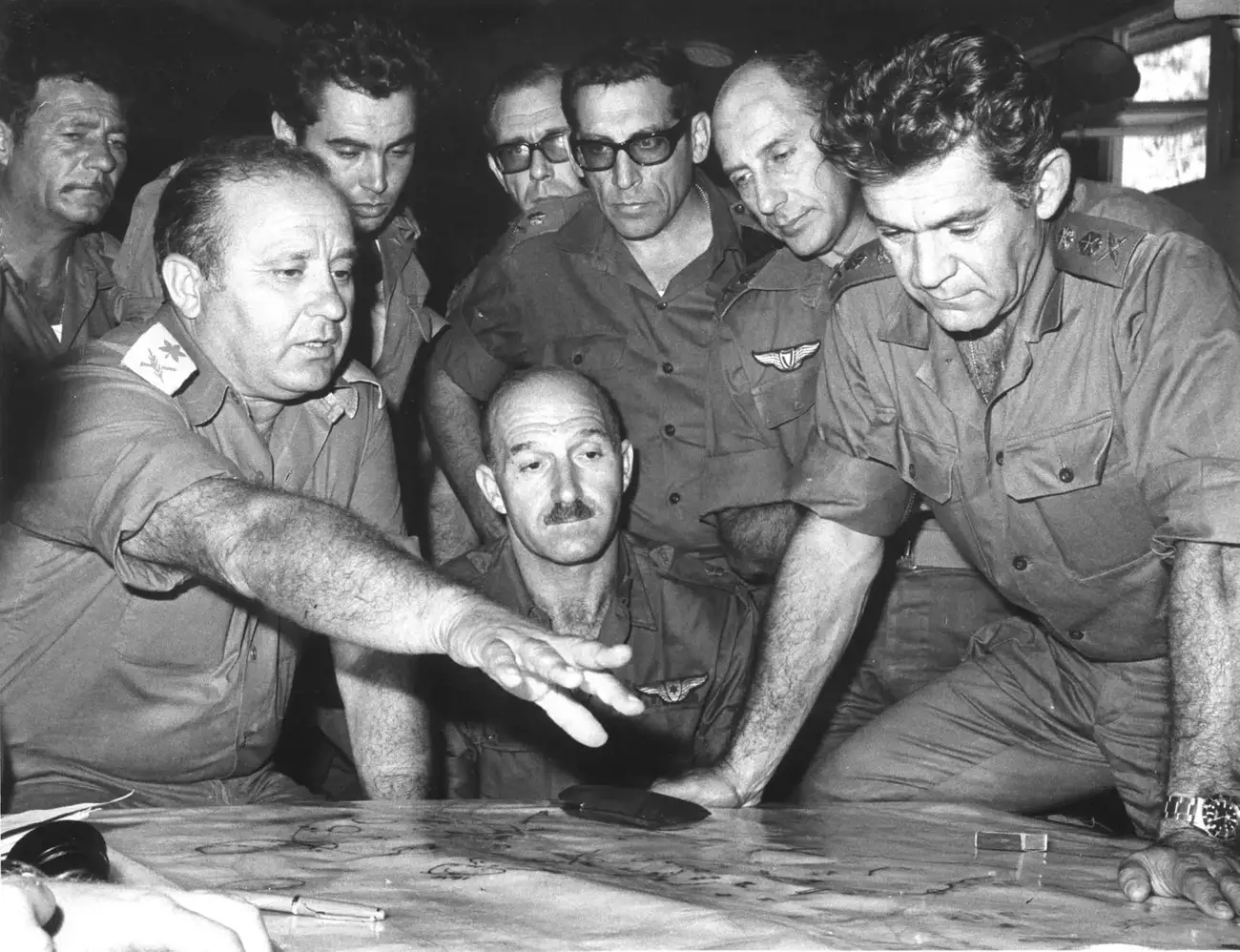
Major-General Eli Zeira, second on the right, at Israeli Northern Command HQ, October 1973. (Photo: IDF Archives, Defense Ministry)
The Yom Kippur War is often remembered for the significant intelligence failure that preceded it.
Israeli intelligence agencies, particularly Mossad (responsible for external intelligence) and Aman (responsible for military intelligence), failed to detect the preparations and intentions of Egypt and Syria adequately.
Several factors contributed to this failure:
- Overconfidence: Israel's intelligence agencies had become overconfident in their ability to predict enemy actions based on previous successes, particularly the Six-Day War of 1967.
- Misreading Signals: Despite some indicators of a possible attack, Israeli intelligence misread these signals and dismissed them as part of a larger deception plan.
- Confirmation Bias: Intelligence analysts tended to interpret information in a way that aligned with their existing beliefs and expectations, leading to a failure to connect the dots correctly.
- Lack of Coordination: There was a lack of effective coordination between different branches of Israeli intelligence, which hindered the synthesis of available information.
Immediate Impact
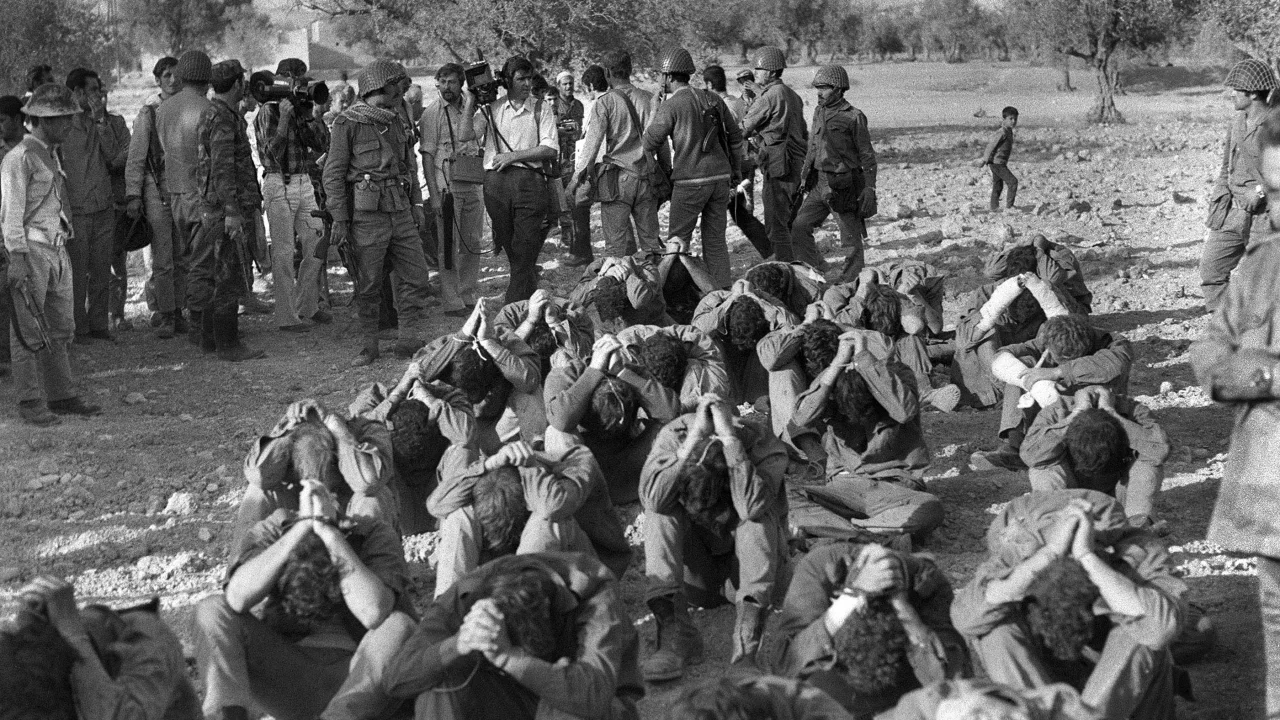
Israelis captured by Syrian troops during the Yom Kippur War are presented to the press on October 16, 1973. (Photo: AFP/Getty Images)
The surprise attack by Egypt and Syria inflicted significant initial losses on Israeli forces, particularly in the early days of the conflict.
Israel had to mobilize reserve forces and face fierce fighting on multiple fronts.
Reforms and Changes in Israeli Intelligence
The intelligence failure during the Yom Kippur War prompted a comprehensive reevaluation of Israel's intelligence apparatus. Key reforms and changes included:
- Improved Coordination: Israel's intelligence community underwent significant restructuring to enhance cooperation and coordination between different agencies. This aimed to ensure that relevant information was shared promptly and analyzed collectively.
- Investment in Early Warning Systems: Israel invested heavily in early warning systems, such as radar and surveillance technology, to provide better detection capabilities and reduce response times to potential threats.
- Enhanced Human Intelligence: Mossad and other intelligence agencies expanded their networks of human sources, increasing their ability to gather critical information on enemy intentions.
- Institutional Learning: The Yom Kippur War served as a profound lesson for Israeli intelligence. Analysts and leaders emphasized the importance of vigilance and the avoidance of complacency.
- Reevaluation of Intelligence Tradecraft: Israel reviewed and updated its intelligence tradecraft, emphasizing rigorous analysis and scenario planning.
- Strategic Depth: Israeli military doctrine shifted to include the concept of maintaining strategic depth, reducing the risk of a surprise attack. This was partly realized through the Camp David Accords with Egypt, which led to the return of the Sinai Peninsula to Egyptian control.
Institutional Learning
Beyond the immediate aftermath, the Yom Kippur War instilled a culture of vigilance and a commitment to proactive measures.
Complacency was replaced by a determination never to underestimate potential adversaries.
Additional Intelligence and Defense Failures of Israel
In addition to the Yom Kippur War, Israel has faced a series of intelligence and defense failures, each with its lessons learned and significant changes made.
Here's a closer look at these failures and their associated lessons and changes:
1. Entebbe Raid (1976):
- Failure: The intelligence failure was not having advanced knowledge of the terrorists' plans.
- Lessons Learned: Israel realized the need for more proactive intelligence gathering on terrorist organizations and their activities abroad.
- Changes Made: Mossad, Israel's external intelligence agency, intensified efforts to gather actionable intelligence on potential terrorist threats globally.
2. First Lebanon War (1982):
- Failure: The IDF faced challenges in urban warfare and underestimated the complexity of the conflict.
- Lessons Learned: Israel recognized the need for better preparation, including understanding the unique challenges of fighting in urban environments.
- Changes Made: The IDF underwent training reforms to enhance its capabilities in urban warfare and established dedicated units for such operations.
3. Second Intifada (2000-2005):
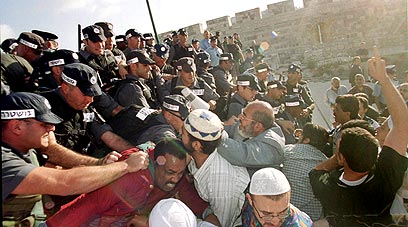
Palestinian protestors clash with Israeli police outside the Al-Aqsa mosque, September 28, 2000
- Failure: Israeli security forces were caught off guard by the outbreak and intensity of the Second Intifada.
- Lessons Learned: Israel understood the importance of continuous monitoring and assessment of the security situation.
- Changes Made: Enhanced intelligence gathering and increased cooperation between different intelligence agencies to better anticipate and respond to potential threats.
4. Kidnapping of Gilad Shalit (2006):
- Failure: The abduction of Gilad Shalit revealed vulnerabilities in preventing such incidents.
- Lessons Learned: Israel recognized the need for improved border security and intelligence sharing.
- Changes Made: Efforts were made to strengthen border security, particularly along the Gaza border. There was also an emphasis on intelligence cooperation with neighboring countries.
5. Rocket Attacks from Gaza:
- Failure: Rocket attacks from Gaza have continued despite Israel's efforts to counter them.
- Lessons Learned: The need for ongoing adaptation and development of countermeasures in response to evolving threats.
- Changes Made: Israel invested in the development of anti-rocket systems like Iron Dome, which has been partially successful in intercepting rockets. The country continues to refine its defense strategies against these threats.
6. 1947–1949 Israel War of Independence
- Failure: Israel's first war faced intelligence challenges.
- Lessons Learned: The need for a robust intelligence apparatus.
- Changes Made: The establishment of Mossad and intelligence development.
7. 1956 Suez Crisis
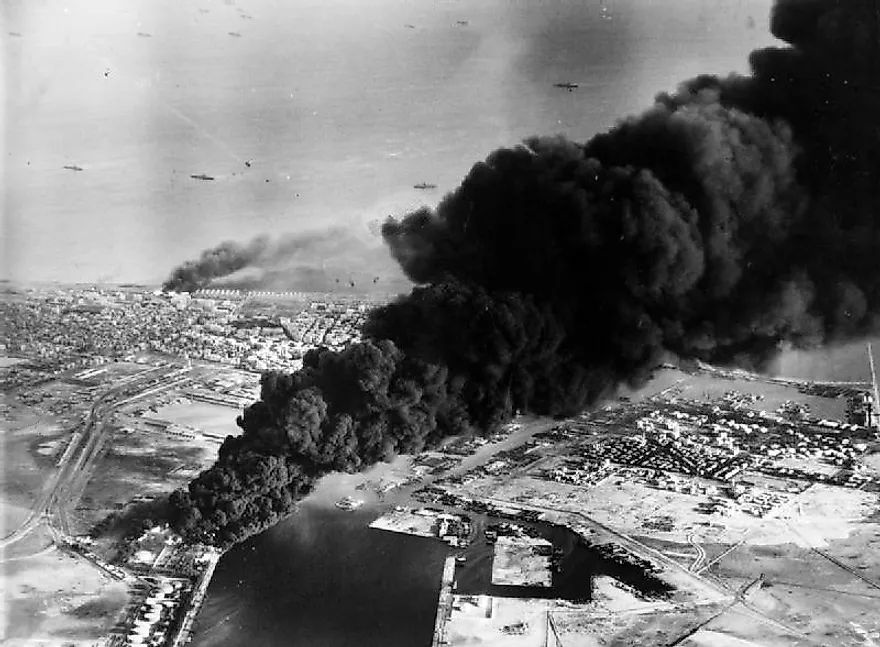
Smoke rises from oil tanks beside the Suez Canal hit during the initial Anglo-French assault on Port Said, 5 November 1956.
- Failure: Israel joined the Suez Crisis without adequate intelligence.
- Lessons Learned: The importance of timely and accurate intelligence.
- Changes Made: Enhanced intelligence-gathering efforts.
8. 1967 Six-Day War
- Failure: A surprise attack by Arab nations led to quick Israeli victories.
- Lessons Learned: Israel can prevail with effective intelligence.
- Changes Made: Continued investment in intelligence.
9. 1970 Black September
- Failure: Palestinian terrorists hijacked airplanes.
- Lessons Learned: Threats from non-state actors.
- Changes Made: Strengthened airport security.
10. 1972 Munich Olympics

Eleven Israeli athletes were killed after being taken hostage by members of a Palestinian militant group during the 1972 Munich Olympics. (Photo: AP)
- Failure: Palestinian terrorists killed Israeli athletes.
- Lessons Learned: The need for counterterrorism units.
- Changes Made: Formation of Sayeret Matkal.
11. 1974 Ma'alot Massacre
- Failure: Palestinian terrorists took hostages in a school.
- Lessons Learned: Enhance counterterrorism capabilities.
- Changes Made: Strengthened special forces.
12. 1976 Operation Entebbe
- Failure: A daring rescue operation in Uganda.
- Lessons Learned: The importance of intelligence in hostage situations.
- Changes Made: Continued emphasis on intelligence.
13. 1982 Lebanon War
- Failure: Invasion of Lebanon with mixed results.
- Lessons Learned: The complexity of asymmetric warfare.
- Changes Made: Adaptation in military strategy.
14. 1991 Gulf War Scud Attacks
- Failure: Iraq launched Scud missiles at Israel.
- Lessons Learned: Preparedness for missile threats.
- Changes Made: Development of missile defense systems.
15. 1992 Embassy Attack in Buenos Aires
- Failure: Bombing of the Israeli Embassy in Argentina.
- Lessons Learned: The need for international cooperation.
- Changes Made: Strengthening diplomatic security.
16. 1994 AMIA Bombing in Buenos Aires
- Failure: Another bombing targeting the Jewish community.
- Lessons Learned: Heightened vigilance against terrorism.
- Changes Made: Enhanced security measures.
17. 2000–2005 Second Intifada
- Failure: Period of Palestinian uprisings.
- Lessons Learned: Challenges in urban warfare.
- Changes Made: Adaptation in counterinsurgency tactics.
18. 2006 Lebanon War
- Failure: Conflict with Hezbollah.
- Lessons Learned: The resilience of non-state actors.
- Changes Made: Refined strategies for future conflicts.
19. 2008–2009 Gaza War (Operation Cast Lead)
- Failure: Military operation in Gaza.
- Lessons Learned: Difficulties in urban warfare.
- Changes Made: Continued urban warfare training.
20. 2010 Gaza Flotilla Raid
- Failure: Intercepting a flotilla headed to Gaza.
- Lessons Learned: Managing international incidents.
- Changes Made: Improved diplomatic efforts.
21. 2014 Gaza War (Operation Protective Edge)
- Failure: Conflict with Hamas in Gaza.
- Lessons Learned: Challenges in asymmetric warfare.
- Changes Made: Continued investment in military technology.
22. 2015 Iran Nuclear Deal
- Failure: Concerns over Iran's nuclear program.
- Lessons Learned: Diplomacy can impact security.
- Changes Made: Monitoring Iran's nuclear activities.
23. 2016 Arson Attacks in Israel
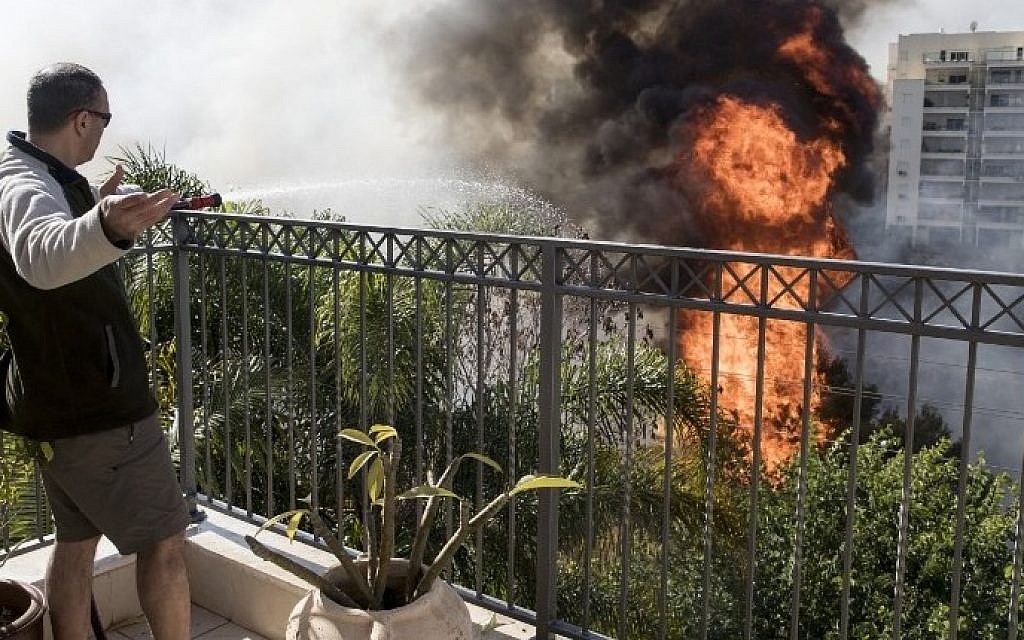
An Israeli man tries to extinguish a fire with a hose from a rooftop in the northern Israeli port city of Haifa, November 24, 2016. (Jack Guez/AFP)
- Failure: Series of fires in Israel.
- Lessons Learned: Vulnerabilities to arson attacks.
- Changes Made: Enhanced fire response capabilities.
24. 2018 Gaza Border Protests
- Failure: Demonstrations and clashes at the Gaza border.
- Lessons Learned: Managing border security and protests.
- Changes Made: Continued border security efforts.
25. 2020 Beirut Explosion
- Failure: Explosion in Lebanon's capital.
- Lessons Learned: Regional instability can affect security.
- Changes Made: Strengthening border surveillance.
26. 2021 Cyberattacks
- Failure: Cyberattacks on Israeli infrastructure.
- Lessons Learned: Growing cyber threats.
- Changes Made: Increased cybersecurity measures.
27. 2021 Conflict with Hamas (Operation Guardian of the Walls)
- Failure: Recent conflict with Hamas in Gaza.
- Lessons Learned: The importance of timely intelligence.
- Changes Made: Ongoing reforms in intelligence and defense.
28. Altalena Affair (1948)
- Failure: A confrontation between Israeli forces and the Irgun militia.
- Lessons Learned: The need for unity among military forces.
- Changes Made: Emphasis on unified command.
29. Qibya Massacre (1953)
- Failure: Israeli forces conducted a reprisal operation in the West Bank village of Qibya.
- Lessons Learned: The consequences of reprisal actions.
- Changes Made: Reevaluation of military tactics.
30. Lavon Affair (1954)
- Failure: A failed covert operation in Egypt.
- Lessons Learned: The risks of covert operations.
- Changes Made: Improved intelligence oversight.
31. USS Liberty Attack (1967)
- Failure: Israeli forces mistakenly attacked the USS Liberty, a U.S. Navy ship.
- Lessons Learned: The importance of accurate identification in combat.
- Changes Made: Enhanced communication protocols.
This comprehensive list illustrates the breadth of Israel's historical intelligence and defense challenges, the lessons learned from each, and the changes made to enhance national security.
Understanding these failures and adaptations is crucial in comprehending Israel's evolving approach to security.
Conclusion
The recent challenges faced by Israel due to surprise attacks by Hamas highlight the ongoing importance of intelligence and defense readiness.
As history has shown, the consequences of intelligence failures can be severe. Israel's commitment to learning from its past, staying technologically advanced, fostering strong international partnerships, and maintaining strategic depth will be critical in navigating an ever-evolving security landscape.
Related News:
Israel’s Intelligence Failure and the Hamas Attack: An In-Depth Analysis - (Aryan D.M.)

